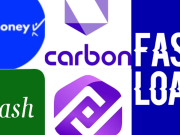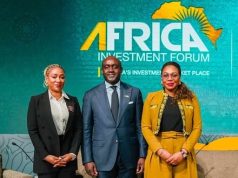London-based fintech Verto has officially launched a new office in Dubai after securing a license from the Dubai Financial Services Authority (DFSA) in early 2025, marking a pivotal step in its strategy to transform cross-border payments between Africa and Asia. Processing over $15 billion annually in global transactions for corporate clients, Verto’s Dubai expansion Africa initiative is designed to provide direct access to UAE dirham (AED) liquidity and enable same-day local clearing—a development that could significantly ease trade bottlenecks for African businesses.
For importers and exporters across Nigeria, Kenya, Ghana, and South Africa, the move offers a timely solution to longstanding challenges: persistent U.S. dollar shortages, wide foreign exchange spreads, and settlement delays that often stretch up to a week. By allowing African firms to settle AED-denominated invoices directly—bypassing the traditional dollar conversion route—Verto reduces both cost and time, while minimizing exposure to volatile forex markets.
Ola Oyetayo, CEO of Verto, said the company aims to “wire real-time, multi-currency capability into the corridors that will define Africa’s next decade of growth.” He emphasized that outdated payment systems—which typically reroute transactions through financial hubs like New York—are no longer suited to the realities of modern South-South trade. “We’re building infrastructure that follows the flow of commerce, not legacy banking paths,” he added.
The new Dubai hub positions Verto at the heart of a rapidly expanding trade axis between Africa and Asia. According to the International Monetary Fund’s Direction of Trade Statistics, merchandise flows between Africa and Asia transiting through the United Arab Emirates have grown by 35 percent since 2019. As Gulf-based logistics, finance, and e-commerce networks deepen ties with African markets, efficient payment rails are becoming critical enablers of this economic integration.
Helen Ghebreluul, Verto’s newly appointed UAE Country Manager, highlighted that the DFSA license allows the firm to hold client funds in multiple currencies—including AED, USD, EUR, and GBP—under a single, compliant regulatory framework. This structure enables African corporate treasurers to access tighter spreads, achieve same-day value, and meet compliance requirements without relying on slow-moving correspondent banking chains.
Beyond infrastructure, Verto is also investing in innovation across the continent. The company recently announced its 2025 Africa Startup Awards, which attracted more than 300 applicants working in supply-chain finance, digital logistics, and automated FX hedging. Finalists will gain access to Verto’s Atlas Suite—an embeddable API platform that allows startups to hold balances in over 40 currencies, collect payments via local bank accounts, and disburse funds using domestic payment rails—all without building complex financial infrastructure from scratch.
This dual approach—establishing regional liquidity in Dubai while empowering African fintechs with plug-and-play financial tools—positions Verto as a private-sector counterpart to public initiatives like the Pan-African Payment and Settlement System (PAPSS), backed by Afreximbank. Analysts suggest that such complementary efforts could reduce cross-border settlement cycles from days to minutes, enhancing the speed, affordability, and resilience of intra-regional and intercontinental trade.
As African economies increasingly pivot toward diversified trade partnerships beyond Western markets, the Verto Dubai expansion Africa underscores a broader shift: the rise of homegrown and diaspora-led financial technologies that are redefining how value moves across borders. In doing so, Verto isn’t just facilitating payments—it’s helping build the financial architecture of Africa’s next-generation trade economy.
Follow us on Instagram.
https://www.instagram.com/businessnewsng?igsh=ZXpweTdjOGF1ZXdu

























